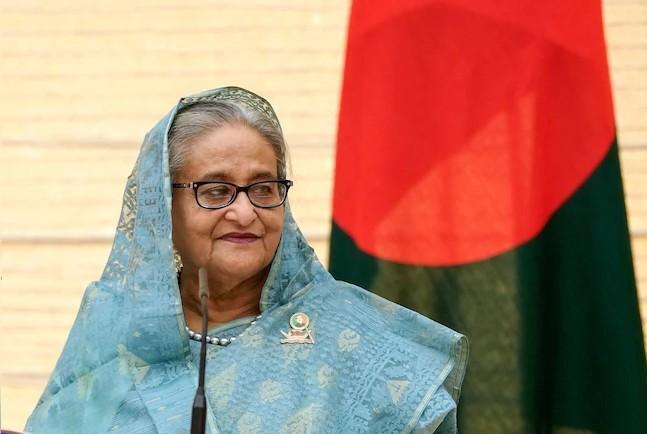
I don’t care about verdict, Allah gave life & he will take it: Sheikh Hasina
In a bold and defiant statement, ousted former Bangladesh Prime Minister Sheikh Hasina has expressed her indifference to the upcoming verdict of the International Crimes Tribunal, scheduled to be announced on Monday. The tribunal has been investigating war crimes committed during the Bangladesh Liberation War in 1971, and Hasina is one of the key figures facing trial. Despite the gravity of the situation, Hasina remains unfazed, stating that she doesn’t care about the verdict. Her words have sent shockwaves across the nation, sparking a mix of reactions from supporters and critics alike.
In a recent interview, Hasina was quoted as saying, “Allah gave me life, Allah will take it…I’ve lost my parents, my siblings, and they burnt down my home.” These words reflect the deep sense of faith and resilience that has characterized Hasina’s life, particularly during the tumultuous periods of Bangladesh’s history. As the daughter of Bangladesh’s founding father, Sheikh Mujibur Rahman, Hasina has faced numerous challenges and tragedies, including the assassination of her family members and the destruction of her home.
Hasina’s son, Sajeeb Wazed, has also spoken out about the upcoming verdict, stating that the tribunal is likely to sentence his mother to death. This prediction has sparked widespread concern and outrage among Hasina’s supporters, who argue that the trial is politically motivated and designed to silence the opposition. The tribunal has been criticized for its lack of transparency and fairness, with many arguing that it is being used as a tool to settle scores with political opponents.
The International Crimes Tribunal was established in 2009 to investigate and prosecute war crimes committed during the Bangladesh Liberation War. The tribunal has been investigating several high-profile cases, including those involving Hasina and other prominent political leaders. The trials have been marked by controversy and criticism, with many arguing that the process is flawed and biased.
Despite the controversy surrounding the tribunal, Hasina remains confident and defiant. Her statement that she doesn’t care about the verdict is a testament to her courage and conviction. As a seasoned politician, Hasina is no stranger to adversity and has faced numerous challenges throughout her career. Her ability to remain calm and composed in the face of uncertainty is a reflection of her strong character and leadership qualities.
The upcoming verdict is likely to have significant implications for Bangladesh’s political landscape. If Hasina is sentenced to death, it could spark widespread unrest and protests, potentially destabilizing the country. On the other hand, if the verdict is favorable to Hasina, it could be seen as a major victory for the opposition and a blow to the current government.
As the nation waits with bated breath for the verdict, Hasina’s statement has become a rallying cry for her supporters. Her words have inspired a sense of hope and defiance among those who believe in her innocence and are committed to fighting for justice. The upcoming verdict will undoubtedly be a significant moment in Bangladesh’s history, and Hasina’s courage and conviction will be remembered for years to come.
In conclusion, Sheikh Hasina’s statement that she doesn’t care about the verdict is a testament to her faith, resilience, and leadership qualities. Despite the uncertainty and adversity surrounding the International Crimes Tribunal, Hasina remains confident and defiant, inspiring her supporters and challenging her critics. As the nation waits for the verdict, one thing is clear: Sheikh Hasina is a force to be reckoned with, and her legacy will continue to shape Bangladesh’s history for years to come.






